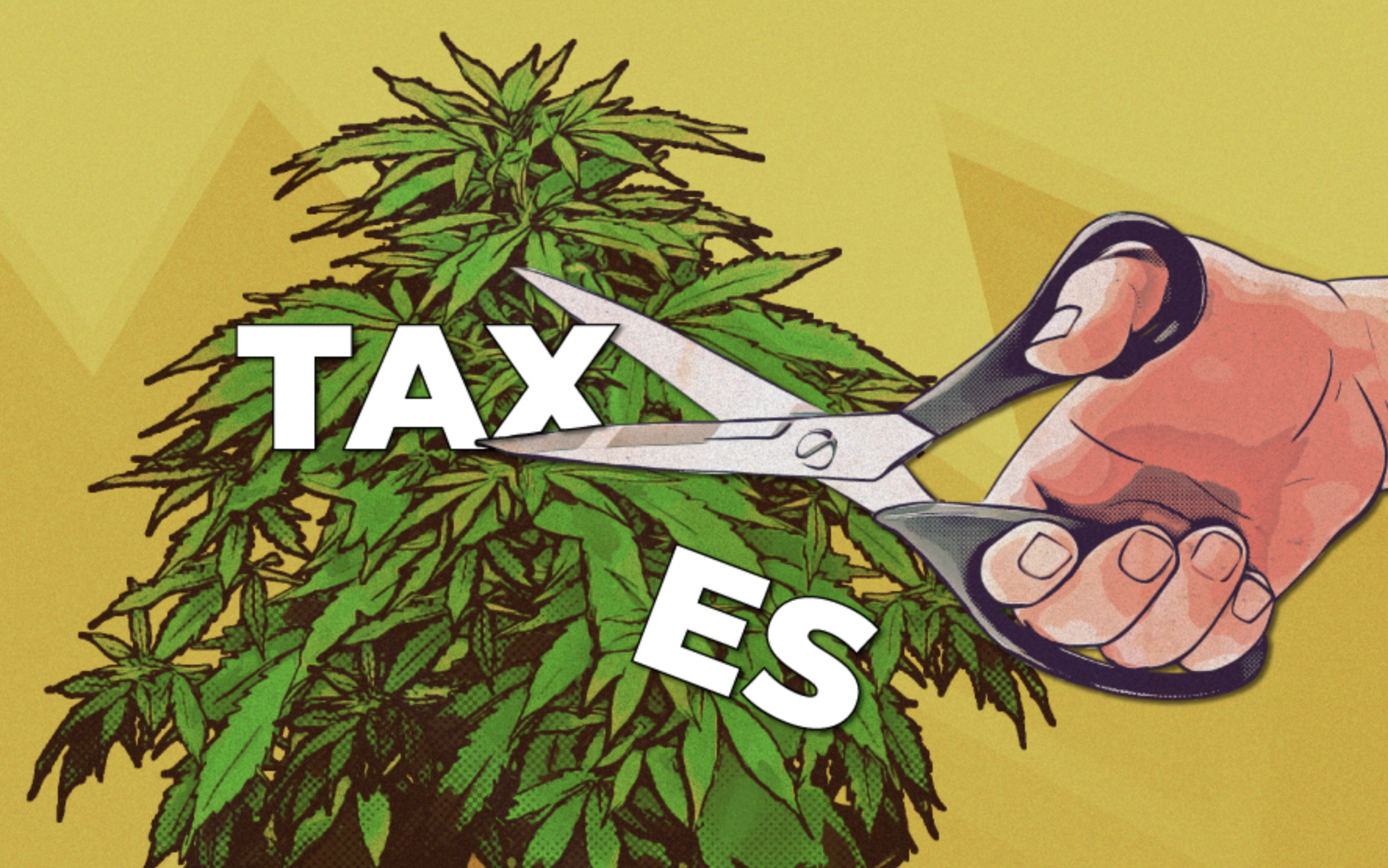California R&D Tax Credit for the Cannabis Industry
LOS ANGELES- The cannabis industry in the U.S. is growing rapidly. As of February 2022, 37 states allow the medical use of cannabis products, and 18 have enacted measures to regulate cannabis for non-medical use.
The growing positive perception of cannabis stems, in part, from significant research aimed at producing better quality plants, uncovering new therapeutic properties, and developing cannabis-based treatments for a variety of mental and physical conditions. This research and development requires a significant investment in equipment, software, processes and personnel.
In other industries, businesses can recoup some of those costs by claiming the federal Research and Development (R&D) Tax Credit. However, because tetrahydrocannabinol (THC) is a Schedule I substance in the Controlled Substances Act, it is still classified as an illegal drug at the federal level. Internal Revenue Code (IRC) §280E disallows all deductions (other than costs of goods sold) and credits based on expenses paid or incurred in the “trafficking” of controlled substances within the meaning of federal law. This precludes many companies in the cannabis industry from claiming the federal R&D credit, despite being licensed as a legal business in their state of operation.
Fortunately, California cannabis businesses may still find significant tax savings on state income tax returns.
Tax Law for California Cannabis Businesses
California legalized recreational and medicinal cannabis with the passage of Proposition 64, The Adult Use of Marijuana Act, and the Medicinal and Adult-Use Cannabis Regulation and Safety Act (MAUCRSA). At the time, California conformed to IRC §280E, meaning California cannabis businesses (other than C corporations) could not deduct business expenses other than costs of goods sold.
That changed with the passage of Assembly Bill 37 in October 2019. The new law eliminated California’s conformity with IRC §280E for licensed Personal Income Tax (PIT) cannabis businesses.
Taxpayers operating under the PIT law generally include:
- Sole proprietorships
- Partnerships
- PIT investors in S corporations
- Limited Liability Companies (LLCs) treated as partnerships and their members
The new law is reflected in Section 17209 of the California Revenue and Taxation Code. It allows licensed cannabis businesses to deduct ordinary and necessary business expenses on their California income tax return, just like any other business. The bill is effective for taxable years beginning on or after January 1, 2020, and before January 1, 2025.
It is important to note that the Agriculture Improvement Act of 2018, commonly known as the 2018 farm bill) legalized growing, selling, possessing, and transporting hemp-derived and cannabidiol (CBD) products. CBD derived from hemp does not contain THC, so as long as the hemp is produced by a licensed grower in compliance with the 2018 farm bill and associated federal and state regulations, the business can claim the federal R&D credit.
California R&D Tax Credit Basics
The California R&D Credit is based on the federal version, with some modifications.
The qualifying research must take place in California to be eligible for the credit. The definition of “qualifying research” is the same for the state-level credit as it is for the federal R&D credit. Research activities are considered “qualified” if they meet all the following requirements:
- Qualified purpose. The research aims to create a new or improved product, process, or formulation, resulting in enhanced performance, function, reliability, or quality.
- Technological in nature. The business undertakes the research activity to discover information that is technological in nature, relying on hard sciences such as engineering, chemistry, physics, biology, or computer science.
- Elimination of uncertainty. The activity is undertaken to discover information intended to be useful to develop a new or improved business component of the taxpayer by overcoming some unknowns, such as uncertainty as to capability, optimal design, or optimal methodology.
- Process of experimentation. Substantially all activities involve a process of experimentation. This process can be demonstrated through simulations, test batches, systematic trial and error, or other methods.
The credit is equal to the sum of the following:
- 15% of qualified expenses that exceed a base amount
- 24% of basic research payments
Qualified R&D expenses fall into three categories:
- Wages for employees performing R&D activities, including those directly involved in research and development and managers directly supervising those activities.
- Supplies and raw materials consumed during the research and development process.
- Third-party contractor expenses for providing research and development services to the company. The taxpayer must enter into a written agreement before performance of the research and bear the costs even if the research is unsuccessful.
If the available credit is larger than the company’s state income tax or franchise tax liability for the year, the company can carry over any unused credit to subsequent years until it is exhausted.
Activities that Qualify for the California R&D Credit
Your company doesn’t have to have a dedicated research department or R&D lab to qualify for the credit. Examples of qualifying activities for cannabis businesses include:
- Experimenting with new strains of plants, soil, lighting, humidity, and other variables
- Researching new or improved fertilizer formulations irrigation systems
- Investigating new ways to manage pests or prevent mold or diseases
- Identifying new applications for cannabis-derived substances
- Developing new cannabis-related products
- Creating new and improved growing processes to increase quality and/or production
How to Claim the California R&D Credit
California’s R&D Tax Credit is available to C corporations, S corporations, LLCs, and Partnerships. To claim the state R&D credit, file your California income tax return and attach form FTB 3523, Research Credit.
To compute the credit, you need your qualified R&D expenses for the tax year, as well as gross receipts for the prior four years.
If your cannabis business was eligible to claim the California R&D credit in a prior tax year and didn’t because you were unaware of the credit or did not believe your activities qualified, you can amend a previous year’s return to claim the credit. You generally have four years from the original due date of the return to file an amended return and claim a refund.
California R&D Credit Documentation Requirements
The California R&C Tax Credit provides a valuable opportunity to offset costs and increase cash flow. However, claiming the credit and documenting eligible expenses is a complicated process.
Credit documentation must adhere to strict criteria, including:
- The documentation must be contemporaneous, meaning it must be documented at the time the research and development was performed—not after you receive an audit notice from the Franchise Tax Board. The larger your R&D credit claim, the more documentation you want to have.
- The documentation must be dated. You must prove that the work occurred in the tax year for which you are claiming the credit.
Companies that fail to follow the applicable rules and guidance or sufficiently document their activities can face stiff penalties and interest.
If you believe your company could benefit from claiming the California R&D Tax Credit, contact your 420CPA strategic financial advisor.
About The Author
Abraham Finberg
Managing Partner
Abraham Finberg MBA, CPA, managing partner at AB FinWright, has been a leader in the cannabis sphere since 2009, counseling clients in all phases of business advisory and tax, from start-up through M&A and IPO.
About The Author
Rachel Wright
Managing Partner
Rachel Wright, MST, CPA, managing partner at AB FinWright, specializes in cannabis accounting and taxation for multi-state and multinational entities, advising clients on everything from internal controls to the bottom-line implications of mixed local, state, federal and international statutes of taxation.
For all your taxation challenges in cannabis, feel free to reach out to me or any of the other team members at 420CPA and share with us your business challenges. We have been helping cannabis companies since 2009.




































